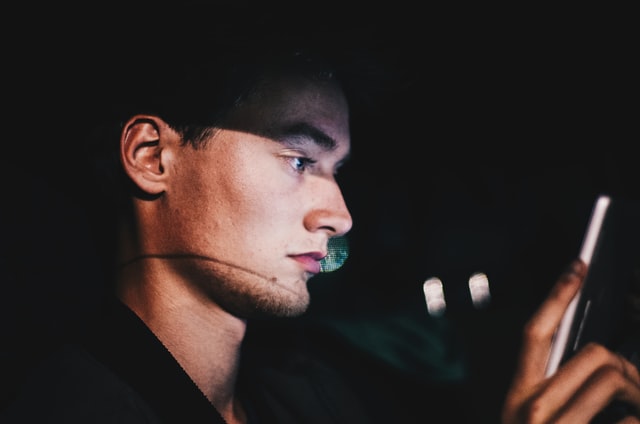Is posting on social media necessarily egotistical, narcissistic, or vain?
If our intention is to validate ourselves, gain approval, or compete with others, it is coming from an egotistical place, and it would be comparing. But if our intention is to capture and convey a feeling, an emotion, an experience, or story to others with the hope that it will connect, uplift, educate, or contribute, it would be sharing.
Social media doesn’t have to be an ego trip, it can be a process of meditation if we utilize it as a way to become more present and to dissolve the ego. I’ve found that when I’ve been able to move through the egotistical, fear-based feelings and thoughts that come up around sharing on social media, it has been a process of letting go and experiencing freedom from my ego, rather than strengthening it.
Sharing on social media can be a process of strengthening presence and love rather than validating the ego.
When we feel wonder, awe, love, joy, we want to share it with others. It’s not the sunset we want to share with each other, it’s the feeling we get when we look at it. Even seemingly “aesthetic” photos are often posted to elicit a feeling, such as an ego endorphin boost or sexual desire.
Our lives are built on chasing positive feelings and avoiding negative feelings. But negative feelings can be just as powerful as positive ones. They can be pointers toward more “positive” feelings if we observe them with a loving mind instead of a fearful mind. This mindfulness is a form of meditation.
I didn’t start out sharing on Facebook thinking, “I want to build a following.” Instead, I did it with the intention of simply sharing positive content, and therefore, my relationship with posting has changed over the years.
I’ve definitely fallen into the trap of egotistical sharing. I’ve posted photos trying to prove to some douchey guy that I was pretty, talented, and worthy enough, but did I feel better afterward?
Honestly, if I got a lot of likes, yes!
But it was a false sense of “feeling good.” It wasn’t the real deal; it just perpetuated my feelings of unworthiness and turned me into even more of an “Insecure Irene.“
Thankfully this was just a phase, and although I sometimes fall into the social media fear trap, I’m conscious to check in and make sure my posts come from love and a desire to share, rather than comparing myself with others.
Last year when I started to share about my panic attacks on social media, I didn’t think, “This is going to be a Facebook best-seller!” A friend said that she didn’t think “someone like me” would have panic attacks. I was shocked and it moved me. That’s when I knew I had to share my experience no matter how scared I was of judgment or ridicule. I knew it could help people, and that was more important than my egoistic fears.
Comparing comes from insecurity and a view of separation. But that’s not to say that it’s bad. Feelings like jealousy can be helpful pointers to assist us in becoming more present and aware. It’s just an indication of a need for a shift in perspective.
When we perceive negative emotion as a call to action, it can be a positive catalyst for change.
There’s nothing “wrong” with egotistical sharing; it can be helpful in observing and understanding ourselves and the way we perceive the world and others. We are all human and we all have an ego; there should be no shame about that. When we judge others for what they share, we are also being an “Egotistical Eddie.”
Again, we can’t let “Shaming Shane” take over. It’s just how the ego-mind operates.
When I share truth from my heart, I feel a distinct sense of connection and multiplying of the love that I feel rippling out to everyone who comes into contact with my posts. This feel-good sensation not only lasts in me, but it extends out to others. It affirms our sense of connection and oneness rather than our separation.
Coming from this place, social media can be used for:
>> A great opportunity to practice tolerating different opinions than our own.
>> Sharing art and working our creative muscle.
>> Letting go of our ego.
>> Sharing stories and remembering we’re not alone.
>> Learning about other cultures.
>> Inspiration for travel destinations and activities.
>> Motivation to take action to improve our lives.
>> Entertainment.
>> Education.
>> Day-to-day communication.
>> Staying in touch with friends from around the world.
When we post on social media, we simply need to take a moment to ask ourselves, “Where is this coming from?” Am I trying to prove something, am I trying to make someone else wrong, am I trying to puff up my ego? If we are trying to do any of those things, we can just be aware of it without judging ourselves.
If we’re trying to gain approval from someone, it might be a call to action to do some self-love work or see a therapist. If we’re trying to fill a void, maybe we need to take action and pursue a hobby and/or meet new people. We can still post it, but we need to be aware of how we feel afterward.
We can make posting on social media a mindfulness practice. Let’s utilize social media as a platform to share, rather than compare.
If we find ourselves comparing, we just need to give “Insecure Irene, Egotistical Eddie, and Shaming Shane” some love, rather than putting them in the “naughty corner.”
Let them do their job of pointing out a call to action, and then let “Loving Letisha” take over because that lady knows what she is doing!
~












Read 5 comments and reply